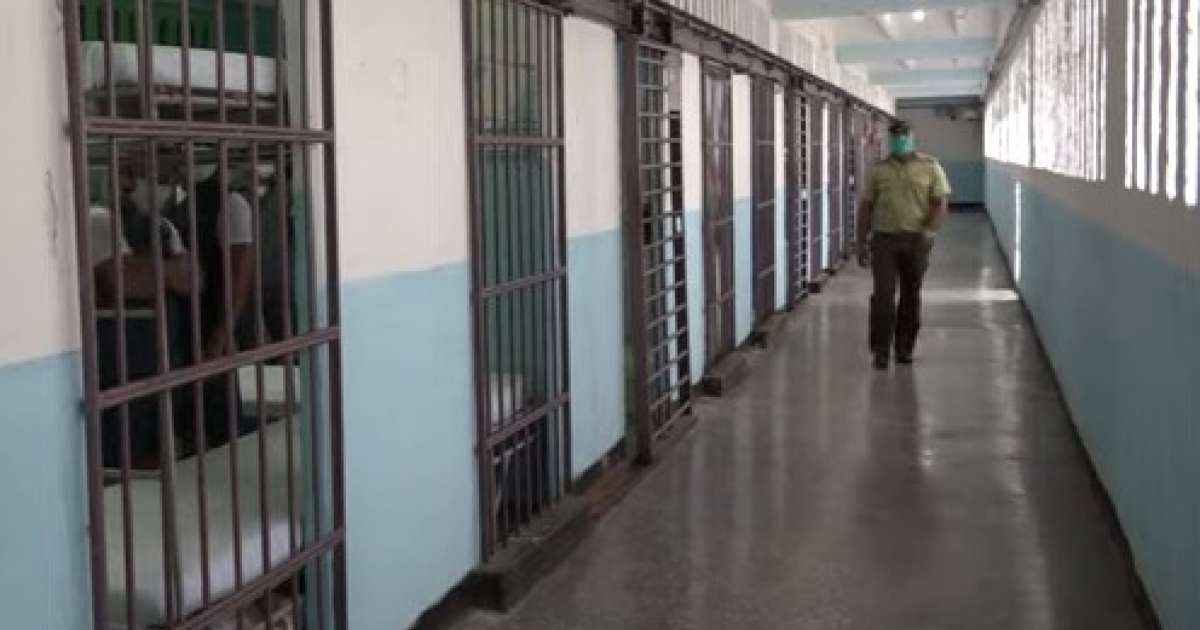
The Cuban government acknowledged before the United Nations Committee against Torture that at least 100 inmates died in the island's prisons in the last year.
The figure is detailed in areport presented to that organization, which issued recent recommendations to stop the death of prisoners, most of whom died from coronary heart diseases.
The Committee criticized Cuba for "not presenting complete statistical information regarding persons deprived of liberty who died during the period under review"; and clarified that the data included in a previous periodic report sent by the Havana authorities was analyzed.
"According to the information included in the periodic report, cardiovascular diseases would be the maincause of death among the inmate population," the document states.
Another observation by the multinational organization indicates that despite having recorded an "average of about 100 deaths in custody per year", in no case did the Cuban State determine "the responsibility of public servants" or attempt to detect "signs of corporal violence during autopsies." ".
It states that when Cuba was urged to respond in this regard, the Delegation said that "between 2016 and 2019, the Military Prosecutor's Office investigated eight complaints presented in relation to the death of people deprived of liberty and that as a result of the corresponding investigations, breaches were noted in three cases, applying disciplinary measures, without specifying, to three officials".
However, Cuba refused to provide information on some inmate deaths, including that of Alejandro Pupo Echemendía, who reportedly died in police custody in Placetas, Villa Clara, and Reidel García Otero, a prisoner at the Valle Grande prison.
In this regard, the Committee against Torture urged the regime to impartially investigate all cases of death during deprivation of liberty by an independent body; and to investigate any possible responsibility of public officials in these deaths.
It also calls for "publishing detailed information on cases of death of people deprived of liberty and the causes; and strengthening measures to improve the quality of medical and health care provided to prisoners.
Likewise, to evaluate existing programs for the prevention, detection and treatment of chronic, degenerative and infectious diseases in the island's prisons.
In another part of the document, the Committee expresses its concern about the subordination of the Attorney General's Office of the Republic to President Miguel Díaz-Canel, established in article 157 of the Constitution; while urging the State to ensure the full independence, impartiality and effectiveness of the Attorney General's Office and the judiciary.
In this regard, it rejects the use in the Cuban penal code of criminal figures based on subjective concepts such as the “dangerous state” and the “official warning” that punish people for their alleged proclivity to commit a crime, as well as “sedition.” which sanctions a wide variety of behaviors, including those that would disturb public order.
"The Committee reiterates its recommendation that the State party modify the provisions of the Penal Code mentioned above with the purpose of putting an end to detention based on subjective, vague and imprecise criminal figures such aspre-criminal social danger and thesedition", which have been used to judge, for example, the protesters of July 11.
Although the Cuban government maintains a hermetic silence about the situation in the country's prisons, some cases come to light thanks to complaints from family members.
In 2020, Cuban Roberto Jiménez del Sol, 56, died in a prison in the province of Matanzas, allegedly due to a beating by the police.
Relatives of the victim stated that Jiménez was detained in a unit of the Revolutionary Armed Forces (FAR) due to a shortage in the store where he worked.
Although the police reported that he had died of a heart attack and that he had been taken to the hospital three times, there was no record of any visits to the doctor, and the body had bruises on the neck, face and eyes, to which the police Officers said she had fallen in the bathroom and that caused the bruises.
Last year, Cuban Bárbara Rosabal Fernández blamed the authorities of the Combinado del Este prison forthe death of his son, Joaquín Martínez Rosabal, found dead in a cell at the National Prisoners Hospital, in December 2019.
"My son was a victim of the abuse that exists here in the prisons of Cuba, and nothing, here there is no one to complain to," he complained in statements toCubanet the mother, who has not stopped demanding that the authorities investigate her son's death without receiving a response.
In May 2021Maykel Acosta, 35 years old, died in the Combinado del Este prison, in the Havana municipality of Guanabacoa. Acosta was at least the fourth Cuban to die that year in Cuba in police custody and the second to lose his life in May.
Last February it was also knownthe case of a jamaican that he would have committed suicide in the La Condesa prison for foreigners, in Mayabeque. However, inmates warned of the strange behavior of several officers after the tragedy, who cleaned the scene before calling experts.
What do you think?
SEE COMMENTS (7)Filed in: